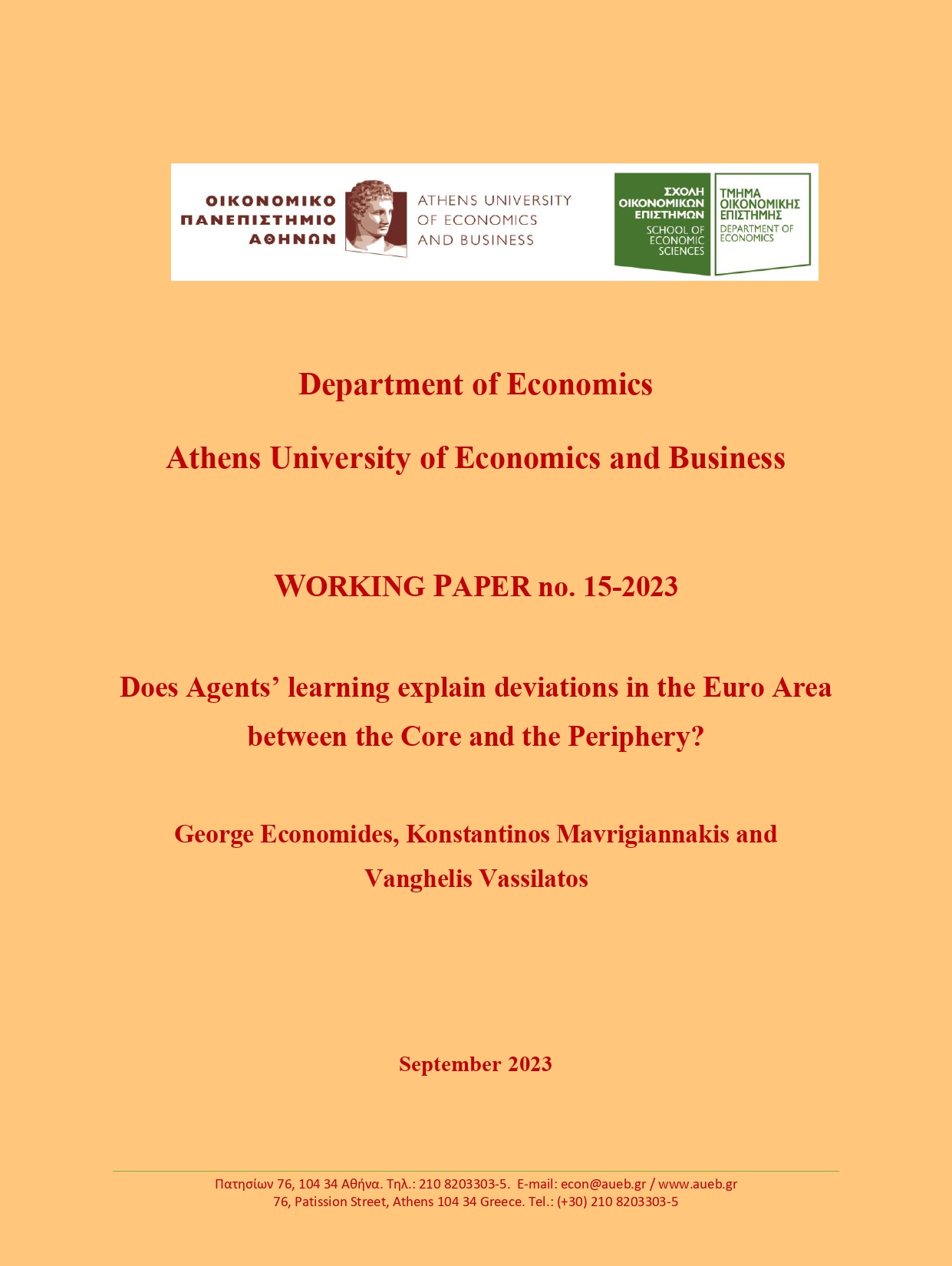Ανάρτηση Ερευνητικoύ Δοκιμίου no 15/23
Περίληψη
In this paper we investigate the role of learning in a two-country, dynamic stochastic general equilibrium (DSGE) model to analyze the differences in the economic cycles between the Core and the Periphery in the Euro Area for the period 2000 to 2019. Following Milani (2007) we compare the performance between rational expectations (RE) models with New-Keynesian frictions (price, interest rate and wage stickiness) and habits with models augmented with learning using Bayesian techniques. By incorporating learning, we aim to capture the impact of the endogenous evolution of beliefs in the two economies. Our findings suggest that learning plays a significant role in explaining the divergent economic performances of the Core and the Periphery. Furthermore, we conclude that a monetary authority who aims to minimize welfare losses from output and inflation volatility should react more intense to stabilize inflation under learning.
Ο Γεώργιος Οικονομίδης είναι Καθηγητής και Πρόεδρος του τμήματος Διεθνών και Ευρωπαϊκών Οικονομικών Σπουδών του Οικονομικού Πανεπιστημίου Αθηνών, o Κωνσταντίνος Μαυριγιαννάκης είναι διδάκτορας του τμήματος Διεθνών και Ευρωπαϊκών Οικονομικών Σπουδών του Οικονομικού Πανεπιστημίου Αθηνών και ο Ευάγγελος Βασιλάτος είναι Καθηγητής και Πρόεδρος του τμήματος Οικονομικής Επιστήμης του Οικονομικού Πανεπιστημίου Αθηνών.






 Πατησίων 76
Πατησίων 76 2108203 303
2108203 303
